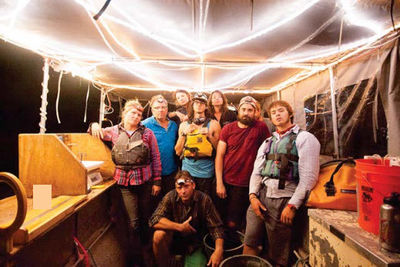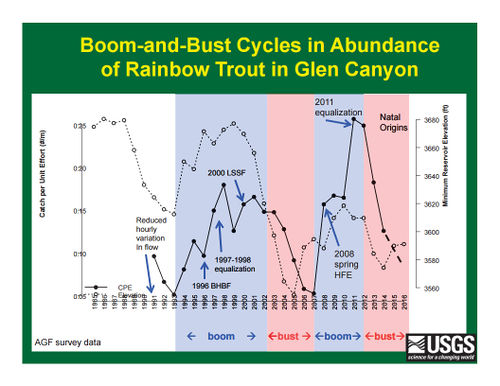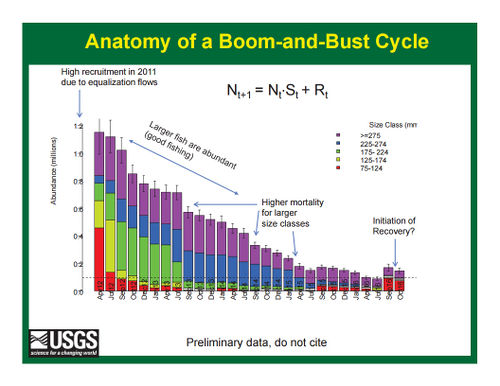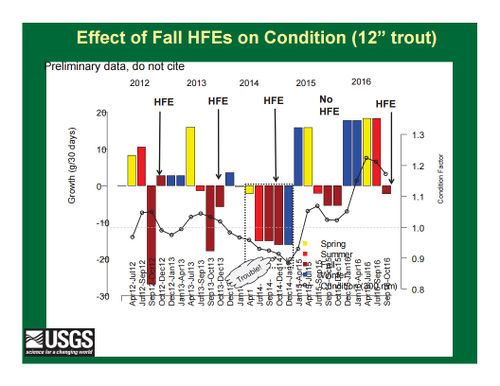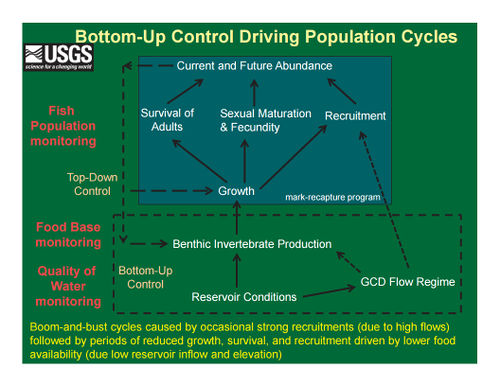|
STAY ON THE ROAD TO LEARNING: Estimate growth, survival, recruitment, and abundance by mark-recapture at time- scale that is fine enough to address GCD AMP questions.
- Response of recruitment to a particular flow in one year (e.g. spring HFE, 2011 equalization)
- Seasonal effects of fall HFEs on growth
- “Identify approaches to determine the root cause(s) of the unstable trout population in Lees Ferry” (#1 question)
- Measure export of trout from Glen Canyon to upper Marble Canyon (tagging not needed)
The current Catch-Per-Effort survey provides imprecise indices of recruitment and abundance.
- Useful for assessing trends in population over longer blocks of time (e.g. 5 yrs), but not for tracking annual changes needed to address management questions.
- Growth is not estimated from CPE surveys but is needed to understand why recruitment and abundance are changing, and effects of fall HFEs.
Two choices for TWG:
- Keep asking current management questions and therefore continue with mark-recapture program that can address these questions.
- Ask much simpler questions restricted to long-term trends in status which can be addressed from current CPE program.
|
